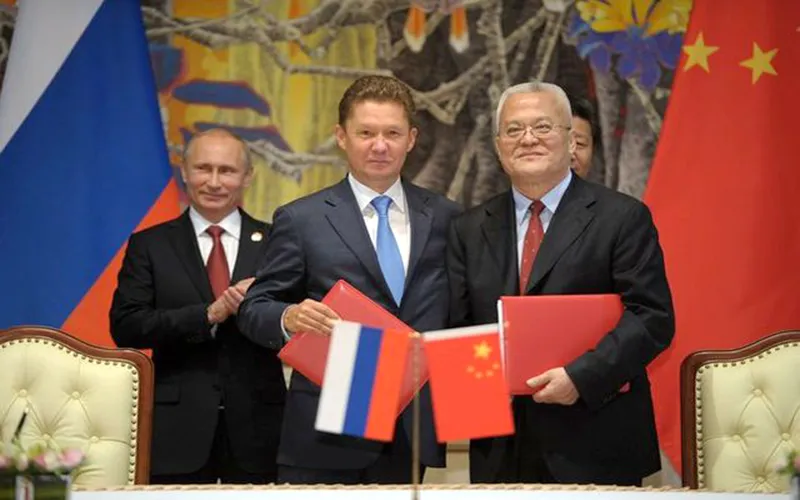-
CENTRES
Progammes & Centres
Location
Though China has gained from the Ukraine crisis, the present situation also places China in a diplomatic bind. A strong proponent of the absolute nature of sovereignty, it does not support separatist movements.

The turmoil in Ukraine began in late 2013 and the situation has remained tensed ever since. While the West has increasingly showed its discontent with Russian intervention in Crimea, China has maintained a well calculated distance from the crisis, considering its stake in both Europe and Russia. China's diplomacy is focussed on making all encompassing progress in the 'belt and road' initiatives. In this regard, promotion of connectivity, building corridors for overland economic activities and pillars of maritime cooperation tops the list of its priorities. Cordial relations with Europe thus become important from the point of building the 'road' initiative. However, at the same time, Russia is an important strategic partner for China. In fact, sanctions against Russia have given China, an opportunity to make the best deals in terms of procuring resources from Russia. As James DJ Brown of the Temple University, Japan, puts it: "Current US policy on the Ukraine crisis is driving Russia into China's embrace". So, if there is one country which has actually gained economically from the Ukraine crisis, it is China.
However, the present situation also places China in a diplomatic bind. A strong proponent of the absolute nature of sovereignty, it does not support separatist movements. More significantly, the Constitution of China underscores its policy of non-interference in the internal affairs of other states. Russia's use of a referendum to break Crimea away from Ukraine contradicts this fundamental tenet of Chinese foreign policy. China obviously will not want the precedent set by the Crimean referendum to be repeated in its own disputes, be it with Tibet, Xinjiang or Taiwan. In general, what we see is a cautious and neutral China which has maintained a restrained approach on the crisis.
While Russia and China may not be best of friends, what brings the two powers together at this time is mutual need and prospects of gain. Sanctions have exposed the EU and Russia, in terms of energy and technology exchange between the two. While Russia is in search of new markets after Western sanctions came into force, China is the pre-eminent power with a need for natural resources. Hence, a partnership of convenience exists between the two.
Russia and Chinese trade amounted to approximately $95.3 billion last year, and China's Foreign Minister Wang Li has hinted at closer cooperation this year. Thus, it may not be an exaggeration to say that Sino-Russian relations have entered a new phase since the West levied sanctions on Russia. During his visit to Shanghai in mid-2014, Russian President Vladimir Putin remarked that bilateral interactions between the two had become "best in all their many centuries of history." A case in point is the $400 billion gas deal signed between China and Russia last year. In 2014, it was reported that Russia was ready to supply Su-35 fighter jets to China. The two countries also conducted a combined military exercise in the East China Sea.
Europe, which used to be outside China's strategic influence, has also come closer. The EU is China's biggest trading partner while China is the EU's second largest trading partner. China has also found support from Europe in its Asian Infrastructure Investment Bank Initiative with France, Germany, Luxembourg, Switzerland, Denmark and Austria seeking membership of the bank in spite of US opposition.
However, the Sino-Russia relationship may turn out to be more limiting than liberating for Russia in the long term. Don't forget that China has benefitted from the sanctions regime and the gas deal was concluded last year only because Russia ultimately agreed to the prices set by China.
(The author is a researcher at Observer Research Foundation, Delhi)
Courtesy: The Pioneer, May 6, 2015
The views expressed above belong to the author(s). ORF research and analyses now available on Telegram! Click here to access our curated content — blogs, longforms and interviews.